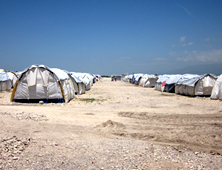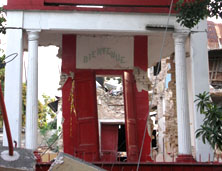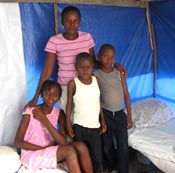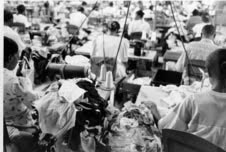
Haiti: People Need a Stable Life
Carine Exantus is a 22-year-old university student majoring in social communications. She lost her home, aunt, and cousin in the earthquake of January 12.

Carine Exantus is a 22-year-old university student majoring in social communications. She lost her home, aunt, and cousin in the earthquake of January 12.

Haitian community radio stations are gearing up broadcast the voices, perspectives, and issues of internally displaced peoples, while at least one young woman in a refugee camp has launched her own communication program: an international blog.

Colette Lespinasse is director of the Support Group for the Repatriated and Refugees (GARR, by its French acronym) in Port-au-Prince. Here are her thoughts on solutions to the crisis in which 1.9 million homeless people are still living in precarious tents and other makeshift structures, six months after the earthquake.

Haiti during the World Cup is much like my hometown of New Orleans was during the Superbowl. Don’t try to make plans with anyone to do anything during a game. (In the more cash-rich New Orleans, the ban on non-game-related activity stretched back a day or two before a game, because there was food and alcohol to be purchased and a feast to be cooked.) I make the mistake of trying to go to a cell phone office during that time; employees sit hypnotized in front of the big-screen TV, unwilling to be distracted by clients.

"I'm struggling to end slavery because I know how I suffered," said Helia Lajeunesse, a former restavèk, child slave, who is now a children's rights advocate. Today, there are an estimated 27 million slaves in the world, according to the research of Kevin Bales of Free the Slaves. This is more than at any time in history, even including during the trans-Atlantic slave trade. In Haiti, the only nation ever to host a successful slave revolution, 225,000 to 300,000 children live in forced and usually violent servitude in a system known as restavèk, literally "to stay with." The numbers are at risk of rising dramatically because of the hundreds of thousands of children who lost their parents or were abandoned after the earthquake

Copyright Toward Freedom 2019